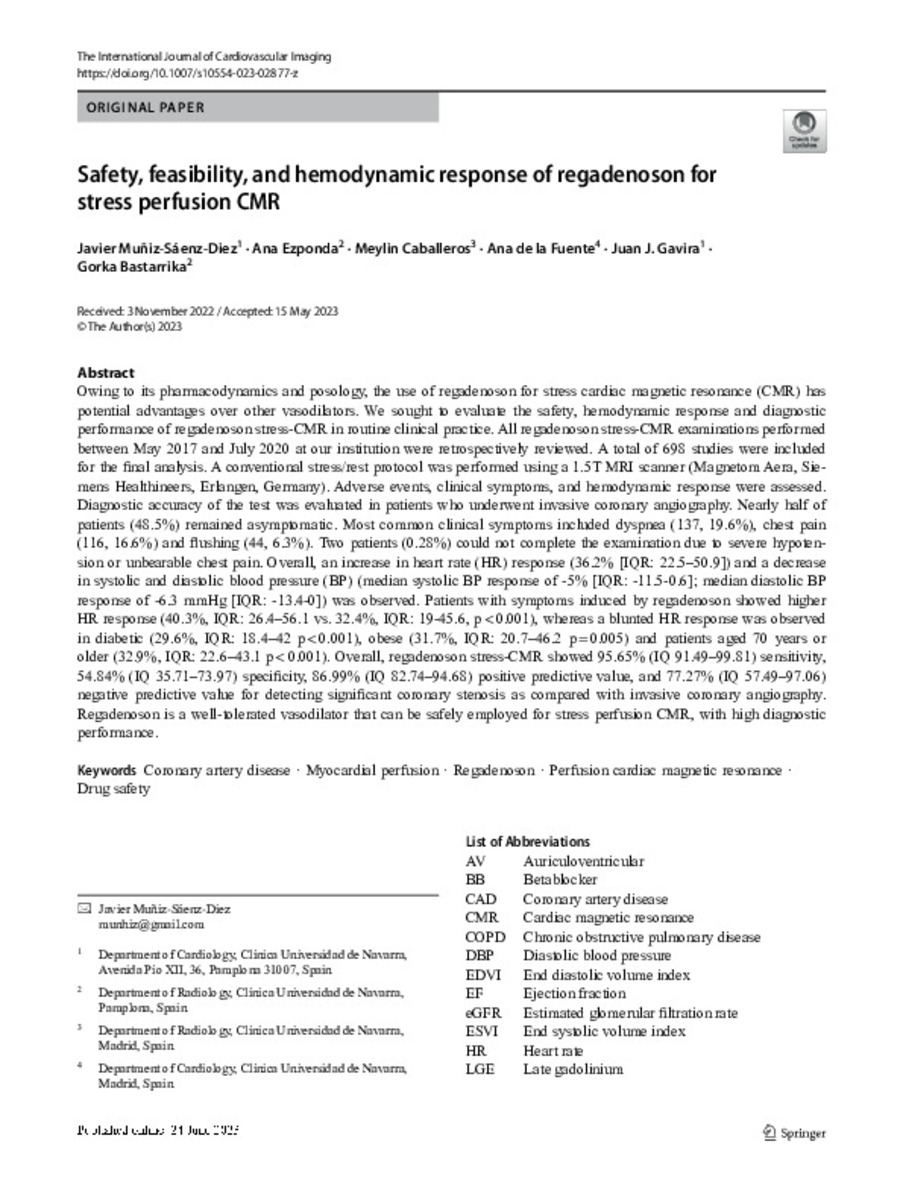Safety, feasibility, and hemodynamic response of regadenoson for stress perfusion CMR
Palabras clave :
Coronary artery disease
Myocardial perfusion
Regadenoson
Perfusion cardiac magnetic resonance
Drug safety
Fecha de publicación :
2023
Nota:
This article is licensed under a Creative Commons
Attribution 4.0 International License
Cita:
Muñiz-Sáenz-Diez, J. (Javier); Ezponda, A. (Ana); Caballeros, M. (Meylin); et al. "Safety, feasibility, and hemodynamic response of regadenoson for stress perfusion CMR". The International Journal of Cardiovascular Imaging. 39 (9), 2023, 1765 - 1774
Aparece en las colecciones:
Estadísticas e impacto
0 citas en

0 citas en

Los ítems de Dadun están protegidos por copyright, con todos los derechos reservados, a menos que se indique lo contrario.








